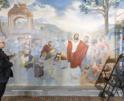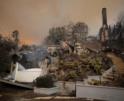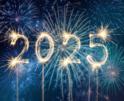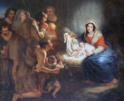
Culture
Charlie Hebdo takes a perverse delight in ridiculing some of these beliefs. Unlike the enlightened defenders of freedom, I think the magazine's opinion is not just different but objectively wrong.
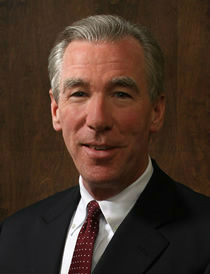
Garvey
Islamic extremists touched a particularly sensitive nerve in the West this month with the murders of cartoonists from the satirical French weekly, Charlie Hebdo. The killings provoked a rally in Paris that French officials called the largest ever. President Francois Hollande was joined by the heads of European states, and by both the Israeli prime minister and the president of the Palestinian Authority.
The slogan "Je suis Charlie" ("I am Charlie") appeared spontaneously on Twitter, handmade signs, mobile phones and websites. It says just enough that we can all subscribe to the sentiment, but not all of us for the same reasons.
Some -- the regular subscribers to Charlie Hebdo perhaps -- want to proclaim their support for the magazine's editorial policy. This is probably a minority viewpoint.
Charlie Hebdo is a written version of our own "South Park" except far more fearless in its profanity. It makes a point of ridiculing Muslims, Jews and Catholics in ways that often cross the line from funny to cruel and sacrilegious.
Its cover for Pope Francis' trip to World Youth Day in Rio showed the pope as a flabby drag queen. The year before the pope's trip, it showed the Prophet Muhammad as a porn star. Even in a country with the French sense of humor, these cartoons would be generally seen as tasteless.
Two other kinds of thinkers might say "Je suis Charlie" to proclaim their support, not for the magazine's content, but for the principle of freedom of speech. The first (call them the enlightened) would invoke Voltaire by way of explanation: "I disapprove of what you say, but I will defend to the death your right to say it."
The bedrock idea is that even if you and I see the world differently, your truth is as good as mine. Fairness requires me to give you as much room to proclaim your truth as I want for my own.
But the second group (call them the believers) views freedom of speech as consistent with a belief in objective truth. I believe that racism really is wrong, that Jesus Christ really is the son of God, that the Catholic Church is holy and apostolic.
Charlie Hebdo takes a perverse delight in ridiculing some of these beliefs. Unlike the enlightened defenders of freedom, I think the magazine's opinion is not just different but objectively wrong.
So why would I defend its freedom to say what is both false and offensive? Contemporary liberalism has forgotten that it was believers who gave us the modern principle of free speech.
John Milton's Areopagitica was an argument to Parliament against censorship. Milton argued that believers should not suppress false speech because God doesn't need our help: "For who knows not that Truth is strong, next to the Almighty? She needs no policies, nor stratagems, nor licensings to make her victorious."
The violent suppression of false speech is a little like Moses striking the rock twice. It demonstrates a lack of faith.
John Locke, another 17th-century English Protestant, made a different argument. He maintained that if we are interested in converting our opponents to our point of view, force will be unavailing:
"True and saving religion consists in the inward persuasion of the mind. ... And such is the nature of the understanding that it cannot be compelled to the belief of anything by outward force."
This year marks the 50th anniversary of the Second Vatican Council's Declaration on Religious Liberty, which echoes Milton's and Locke's arguments. It adds the distinctively Catholic note that coercion, especially in matters of faith, is inconsistent with the dignity of the human person.
To speak frankly, Charlie has not been a very admirable persona. But we honor a bigger principle, not him personally, in saying "Je suis Charlie."
---
Garvey is the president of The Catholic University of America in Washington.
- Garvey is president of The Catholic University of America in Washington, D.C.
Recent articles in the Culture & Events section
-
Scripture Reflection for Jan. 19, 2025, Second Sunday in Ordinary TimeDeacon Greg Kandra
-
In Pacific Palisades, paradise lostGreg Erlandson
-
Happy New Year!Eileen McLaughlin
-
Joyful hopeMichael Reardon
-
Scripture Reflection for Jan. 5, 2025, The Epiphany of the LordDeacon Greg Kandra

